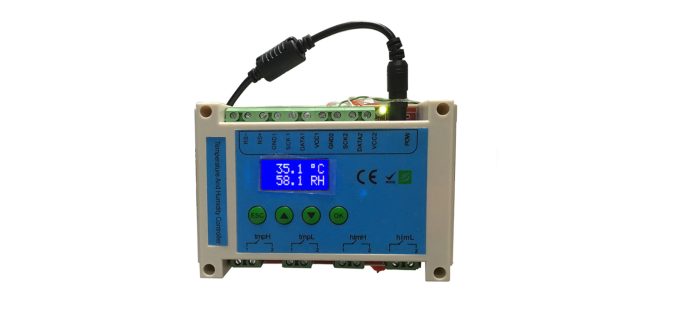Humidity control is critical to maintaining the integrity and longevity of library books. With advanced technology, libraries now have access to the sophisticated Humidity Controller that offers numerous benefits in preserving books and ensuring the sustainability of library collections.
Preserving the Physical Condition of Books
Humidity Controllers serve as the guardians of book collections, protecting them from the adverse effects of fluctuating humidity levels. By maintaining a stable humidity environment, these controllers prevent the expansion and contraction of book materials, minimizing the risk of warping, cracking, or tearing of pages and bindings. Through precise humidity control, libraries can extend the lifespan of their books and keep them in optimal physical condition.
Preventing Mold and Mildew Infestation
Excessive humidity creates a favorable environment for mold and mildew growth, posing a significant threat to the preservation of books. Mold can lead to irreversible damage, including discoloration, staining, and degradation of book materials. Humidity Controllers are crucial in mitigating this risk by regulating humidity levels, ensuring they remain within an ideal range that discourages mold and mildew growth. By preventing infestations, libraries can safeguard their collections and protect the health of library staff and visitors.
Conserving Historical and Rare Books
Libraries often house invaluable historical and rare books that require extra care and attention. These delicate volumes are susceptible to damage caused by fluctuations in temperature and humidity. By investing in high-quality Humidity Controllers, libraries can create a controlled environment specifically tailored to the preservation needs of these special collections. Maintaining stable humidity levels ensures the longevity of historical and rare books, preserving their cultural and intellectual significance for future generations.
Minimizing Insect Pests
Humidity Controllers act as a powerful deterrent against insect pests that can wreak havoc on library collections. Insects like booklice and silverfish are attracted to highly humid environments. These pests feed on organic materials found in books, causing irreparable damage. By implementing precise humidity control measures, libraries can create an inhospitable environment for insects, effectively minimizing the risk of infestation and protecting their books from destruction.
Enhancing Patron Comfort
In addition to preserving books, Humidity Controllers contribute to library patrons’ overall comfort and well-being. Excessive humidity can make the air feel heavy and damp, creating an uncomfortable reading environment. By maintaining optimal humidity levels, libraries can provide a pleasant atmosphere where patrons can enjoy their reading experience without distractions. This, in turn, enhances their satisfaction and encourages them to spend more time exploring the library’s offerings.
Conclusion
Humidity Controllers play a pivotal role in the preservation of books and the sustainability of library collections. By maintaining stable humidity levels, these controllers protect books from physical damage, prevent mold and mildew growth, conserve historical and rare volumes, deter insect pests, and enhance the comfort of library patrons. Implementing advanced humidity control technology demonstrates a commitment to the long-term preservation of knowledge and cultural heritage contained within library collections. With the aid of Humidity Controllers, libraries can ensure the continued availability and enjoyment of books for generations to come, fostering a love for reading and facilitating access to information in a sustainable manner.







